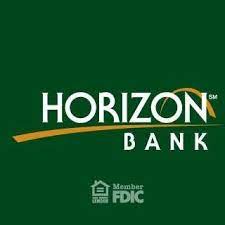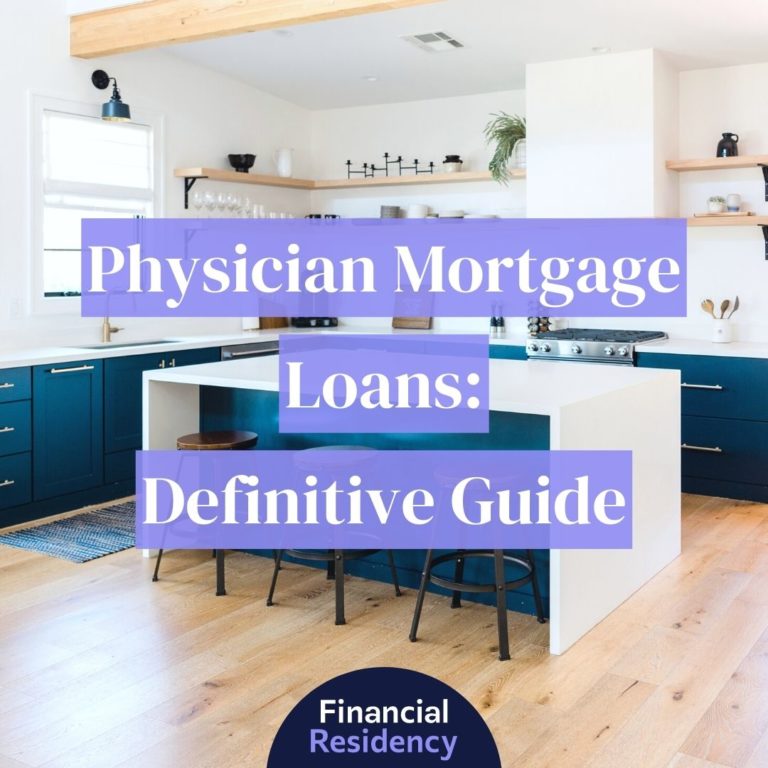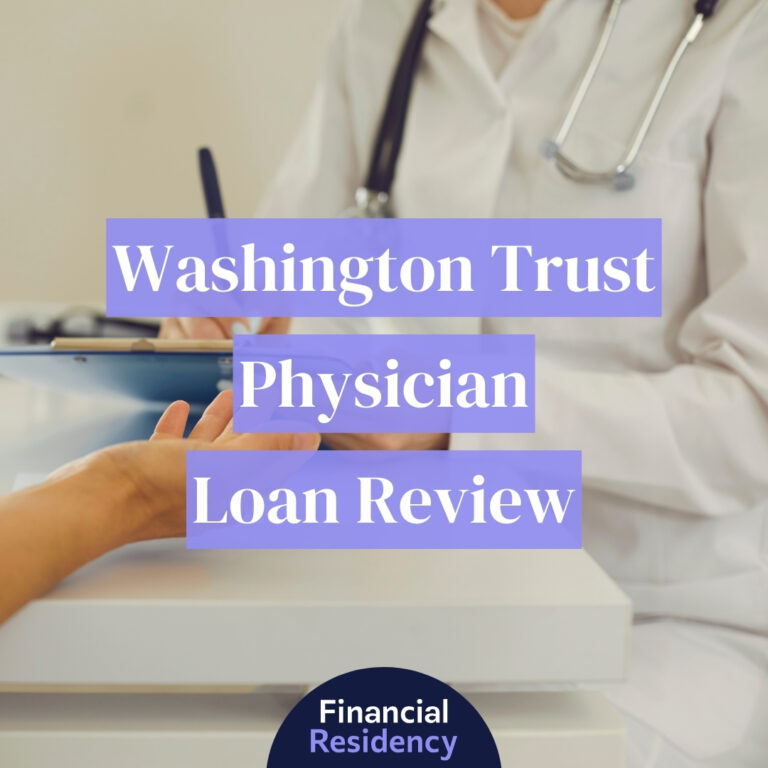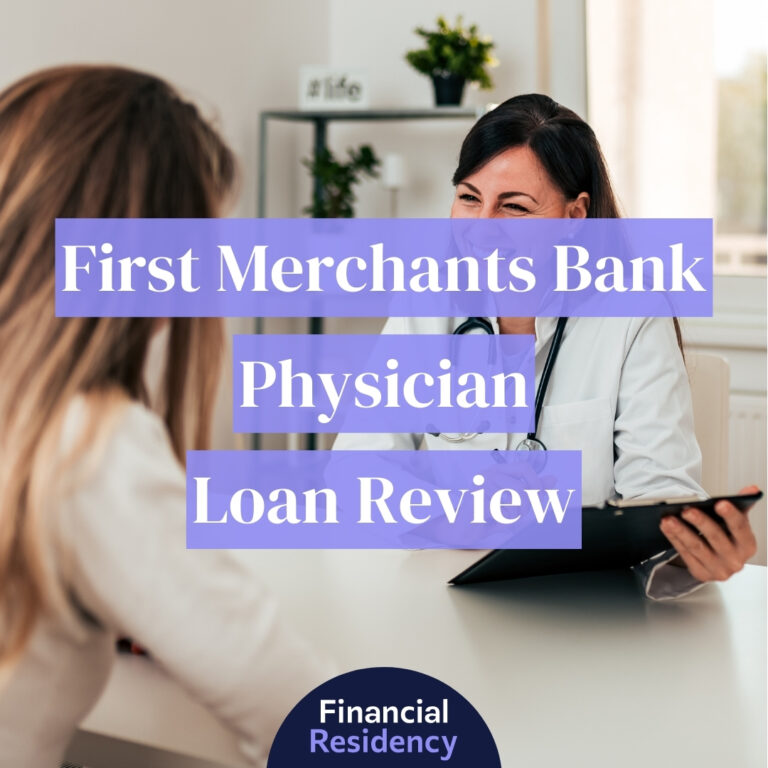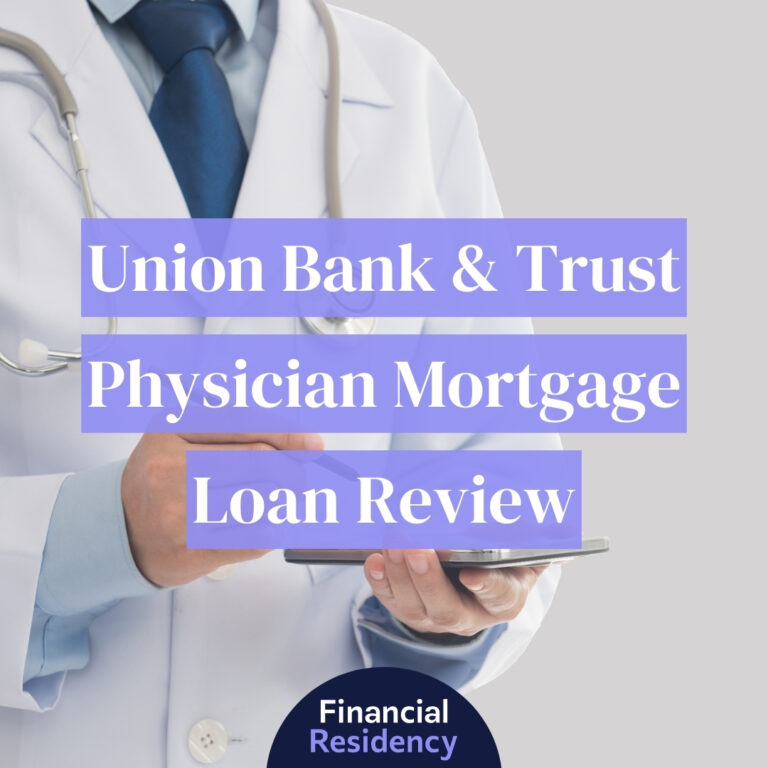Founded in Michigan City, Indiana in 1873, Horizon Bank is a community bank with branches in the states of Indiana and Michigan. Horizon Bank offers a full suite of financial products and services for consumer, small business, and agricultural banking.
- BBB score: A+
- CEO: Craig M. Dwight
- J.D. Power Score: NA
- Parent company: Horizon Bancorp
- Phone number: 1 (888) 873-2640
- Services offered: Banking, trust management, estate planning, HSAs, wealth management, IRAs and retirement planning, conventional loans, business lines of credit, farm loans, and mortgages.
Horizon Physician Loan: Fast Facts
Here are a few fast facts about Horizon Bank’s physician mortgage loan program.
- Discounts: No promotions available at this time
- Qualifying degrees: MD, DO, OD, DMD, DDS, or DPM or licensed residents or fellows pursuing an MD or DO
- Private mortgage insurance (PMI): No PMI required regardless of down payment or loan amount
Discover The Best Lenders Answer just a few questions about your career, where you're buying, and how much you want to borrow. Our service will then show you the exact programs you're eligible for from vetted physician loan specialists who will guide you through every step of the process – obligation-free!
Horizon Bank Physician Loan: Qualifications
Qualifications for the Horizon Bank physician loan program are similar to those you’ll find at other financial institutions offering specialty medical financing for doctors.
Here’s a quick rundown of Horizon Bank’s physician loan qualifications:
- Good to Excellent Credit: No minimum credit score
- Down Payment: Horizon offers “flexible options” for down payments, but doesn’t disclose its down payment requirements.
- Owner-Occupied Property: Like most lenders, Horizon Bank specifies that the home must be your primary residence.
- Eligible Degree: You’re required to have a qualifying medical doctorate, including optometry, podiatry, osteopathy, dental medicine, or dental surgery.
- Significant Savings: Horizon Bank’s website doesn’t specify a savings requirement (i.e. three months of cash reserves), while this requirement may exist.
- Verified Income: Full-time employment in an eligible degree field, full-time residency or fellowship with an MD or DO designation, or scheduled to begin qualifying employment, residency, or fellowship within 90 days of closing on the home loan.
How to Apply
These are the general steps you’ll go through when you apply for a physician mortgage. Knowing what to expect can help you get through each step more smoothly.
Get Pre-Qualified
This is a simple first step in which you provide some initial financial information to your lender (i.e., household income, debts, total monthly expenses) so the bank can determine how much financing you might qualify for. This can be a soft credit pull with an informal amount calculated from your lender. Generally, it gives you an idea of how much house you can afford so you can search for properties within your price range.
Pre-qualification can provide helpful information, but it’s not a guarantee of future loan approval and is less secure than a pre-approval.
Prepare Your Documents and Review Your Credit Report
Applying for a mortgage requires a lot of paperwork to show the bank or credit union that you don’t pose too much financial risk.
You’ll likely provide the last one to two years of tax returns, proof of income via pay stubs or an employment contract, proof of medical credentials, an accounting of assets, and an accounting of debts such as car loans or student loans.
At this step, the lender will do a hard credit pull. Review the items on your credit report to ensure the data is accurate. Look for any errors, such as unknown addresses associated with your name or lines of credit that you don’t recognize.
For conventional or fixed-rate mortgages, banks like to see a minimum of three months’ cash reserves in addition to funds to cover the down payment and closing costs.
With medical loans, however, banks may be willing to meet with you if you don’t have cash reserves.
They recognize a graduating doctor’s personal finances can look bleak on paper before they begin their high-earning career. These healthcare loans are designed to help doctors obtain home ownership based on future earning potential, despite their high debt-to-income (DTI) ratio.
Generally, you’ll want a minimum credit score of at least 700 to qualify for a medical doctor loan. However, with more flexible underwriting for physician mortgages, banks will often work with physicians who have less-than-ideal credit scores.
Get Pre-Approved
Pre-approval is a more formal process than prequalification. You can make an appointment to talk to a loan officer at a Horizon Bank branch, or you can begin the process online. You can find a Horizon Bank loan officer in your area and select the option to apply from that officer’s contact page.
Pre-approval typically happens after you have a defined price range and you’ve begun looking at properties with a realtor. The pre-approval amount is usually valid for 90 days, so it’s important to wait for this step until you are seriously looking and prepared to make an offer on a home.
The process for pre-approval can start online with your application, but your mortgage lender will ask you to provide digital or physical documentation for income, assets, and other areas as outlined in the document preparation step.
Confirm and Lock in the Rate
After you’ve completed the mortgage application in full and submitted it, the assigned loan officer will follow up to confirm the loan amount and loan terms, including the interest rate. The rates are typically locked in 45 days, with the rate based on real estate location, the type of loan (i.e., ARM, conventional, or construction loan), term length, and other factors.
Horizon Bank may offer you conditional pre-approval for a mortgage, with caveats like not incurring any new debt before closing on the home or paying off a specific debt on your credit report.
But even without any formal conditions, until a mortgage closes, any bank’s terms are always conditional. Borrowers who have been approved, with or without caveats, may be refused financing and unable to close. This can happen if your credit score or employment situation changes.
After you’ve got your approval and confirmed rate, keep your credit clean. Don’t apply for financing for furniture or appliances for your new home.
Horizon Bank Physician Loan Alternatives
If your medical profession isn’t included in Horizon Bank’s physician loan program or you need more financing than Horizon offers, there are several other banks with mortgages for medical professionals to consider.
Here are a few top alternatives to compare as you search for the right lender:
KeyBank
KeyBank has a physician loan program that is open to Doctors of Medicine (MD), Doctors of Osteopathic Medicine (DO), Doctors of Podiatric Medicine (DPM), Doctors of Dental Surgery (DDS), and Doctors of Dental Medicine (DMD). Interns, residents, and fellows in these fields are also eligible.
The program will provide up to $3.5 million to purchase or refinance a first or second home, which is extremely generous. Most other physician loan programs will offer up to $2 million at most in total financing
For KeyBank, participants can receive financing up to 95%. There are no zero money-down mortgage products, but the down payment requirements are more lenient. Borrowers may take out mortgages for owner-occupied single-family homes, townhouses, or condominiums.
Since the bank is a full-service mortgage lender, the loan underwriting, origination, and servicing all take place in-house, which minimizes bureaucratic slowdowns and keeps things moving efficiently.
Citizens Bank
Citizens Bank offers a physician mortgage program with attractive rates for early-career medical professionals. Its program is a good option for doctors looking to specifically purchase an owner-occupied home, as that’s the only property type that qualifies for Citizens’ physician loan program. Eligible home units include single-family homes, PUDs, condominiums, or townhouses.
Borrowers can get up to $1.5 million in total financing. A down payment of 5% is required for loans up to $850,000. Down payments of 11% or higher are required for additional financing.
The program is open to medical doctors, doctors of osteopathy, and dentists. Licensed residents may borrow up to $600,000 and upcoming residents can borrow up to $400,000.
Citizens Bank will exclude any student loan debt in its debt-to-income (DTI) calculation, which means you may qualify for a higher amount than you would with a conventional loan.
First Horizon Bank
First Horizon Bank, headquartered in Memphis, Tenn., not to be confused with Horizon Bank, offers a popular physician loan program.
The program provides 100% financing for loans of up to $750,000, and borrowers can receive financing for up to $2.5 million. While student loans are not completely overlooked in the bank’s DTI calculation, First Horizon will exclude student loan debt that is deferred for 12 months or more. No private mortgage insurance is required for any physician loans.
The First Horizon Physician loan program is open to a limited scope of practitioners—Medical Doctors (MD), Osteopath Doctors (DO), Podiatrists (DPM), and Oral and Maxillofacial Surgeons (DDS and OMS).
Additionally, borrowers must be current customers and hold a First Horizon checking account. New borrowers can easily open an account, however, to meet this requirement.
Pros and Cons
Like any lender, Horizon Bank has its advantages and drawbacks. Here’s a quick look at the pros and cons of Horizon Bank’s physician loan program.
Pros
- Open to residents and fellows in eligible medical fields: Some similar physician programs are only open to fully licensed MDs.
- No private mortgage insurance (PMI) requirement: This can save 0.2% to 2.0% in your mortgage payments.
- Flexible down payment options: Horizon will work with borrowers who are unable to put down at least 5%.
- Financing is available with a signed employment contract: Physicians, residents, or fellows with an MD or DO designation can receive financing if the start date for their employment, residency, or fellowship is within 90 days of closing on the home loan.
Cons
- Sparse details online: Horizon Bank publishes limited information about its physician loans. When our editorial team contacted Horizon Bank via chat and the customer service hotline to request more information, we were directed to visit a local branch location as they’re the sole source of all physician loan
- Limited range of qualifying medical degrees: Horizon’s program excludes many professions commonly accepted in other physician loan programs, like physician assistants, nurse practitioners, and nurse anesthetists.
Frequently Asked Questions
Do Physician Loans Have Higher Interest Rates?
Physician loans often have higher interest rates, but not always. Physician loans may have higher interest rates because borrowers tend to have substantial student loan debt, little cash assets, and DTI ratios too high to qualify for conventional mortgages.
Also, most physician loans are adjustable-rate mortgage (ARM) loans and rates can fluctuate wildly. It’s worth shopping around as some banks offer more favorable rates to physicians due to their high earning potential and lower default rates on mortgages.
What Debt-to-Income Ratio Do You Need for a Physician Loan?
It depends on the financial institution, but banks commonly impose a debt-to-income ratio of 45% or 50% for physician loans, and any student loans (deferred or otherwise) must be in good standing. Some banks exclude student loans altogether from their DTI ratio, whereas others may overlook student loans that are on deferment for at least 12 months.
Is Horizon Bank a Licensed Mortgage Broker?
No, Horizon Bank is a licensed mortgage loan originator (MLO). It’s a full-service bank that is licensed to offer and negotiate mortgages and repayment terms to consumers. Horizon Bank is registered with the Nationwide Multistate Licensing System & Registry (NMLS) and has several NMLS-registered bankers and loan officers.
